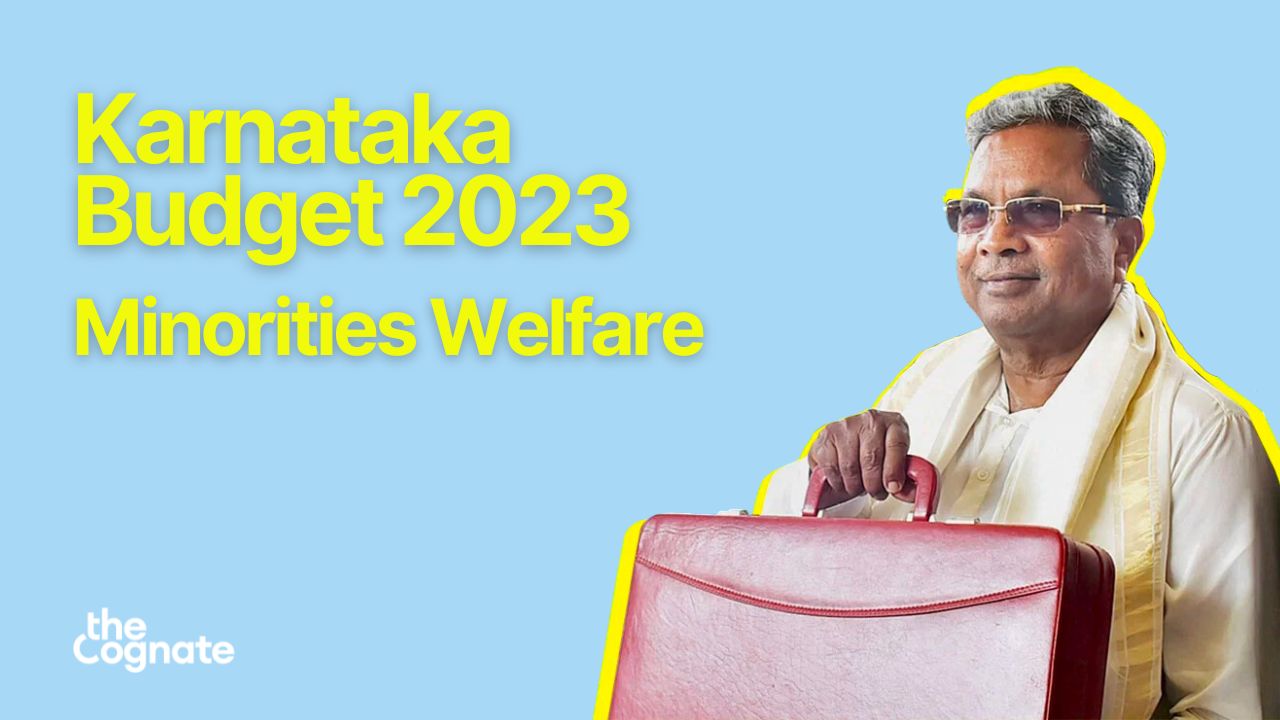Karnataka Chief Minister Siddaramaiah presented the state’s budget for the fiscal year 2023-24, and announced a slew of sops for the upliftment of minority communities. With a range of initiatives aimed at providing educational opportunities, employment support, and community development, the budget aims to empower minorities and promote inclusivity in the state.
One of the key highlights of the budget is the revival of the pre-matric scholarship scheme for minority students. With the central government discontinuing this scheme, Chief Minister Siddaramaiah announced a grant of ₹60 crore to ensure that poor students belonging to minority communities do not face hardship in their pursuit of education.
Furthermore, the budget includes plans to upgrade 62 minority Morarji Desai Residential Schools into integrated schools covering grades 6 to 12. This upgrade will benefit around 13,000 students, with an allocation of ₹30 crore set aside for the scheme. Additionally, the enrollment of students in 50 Morarji Desai Residential Schools will be doubled, benefiting an additional 12,500 students. To support this expansion, ₹23 crore will be provided. The budget also includes the establishment of ten new Minority Morarji Desai Residential Schools.
The government’s commitment to improving educational outcomes for minorities extends to Moulana Azad Schools as well. By identifying better-performing schools, measures will be taken to enhance the quality of education and provide basic infrastructure to schools without their own buildings. Currently, there are 200 Moulana Azad Schools in the state, with encouraging results achieved in terms of student performance.
In a bid to support minority students pursuing professional courses, the budget introduces the ‘Arivu’ educational loan scheme. Under this initiative, minority students admitted through the Common Entrance Test (CET) to 28 professional courses such as Engineering and Medicine will be eligible for an annual loan of ₹1 lakh at a subsidized interest rate of 2%. An allocation of ₹75 crore has been reserved for this scheme.
Language labs will be established in all Minority Morarji Desai Residential Schools at a cost of ₹5 crore to improve the language skills of minority students in Kannada and English. Additionally, skill development training programs will be initiated in selected districts, namely Ramanagar, Belagavi, Davangere, Kalaburagi, and Dakshina Kannada, at a cost of ₹4 crore.
Recognizing the importance of competitive exams, the budget allocates ₹8 crore to provide training through prestigious institutions for two years to students studying in minority pre-university residential colleges. This training aims to prepare students for exams such as NEET, JEE, CET, and other entrance examinations.
To promote higher education abroad, interest-free loans of up to ₹20 lakh will be provided to minority students pursuing graduate and post-graduate courses in prestigious foreign universities ranked below 250 globally.
In an effort to foster self-employment opportunities, the budget introduces the ‘Swawalambi Sarathi’ scheme. This initiative aims to encourage self-employment among unemployed minority youth by providing a subsidy of 50% (up to a maximum of ₹3 lakh) towards the purchase of four-wheeler vehicles. Additionally, a subsidy of up to 20% of the loan amount (up to a maximum of ₹1 lakh) will be provided to 10,000 unemployed youth from minority communities availing loans from banks.
The budget also addresses various other aspects of minority welfare, including the completion of 126 unfinished Shadimahals and community halls, an increase in the Tasthik amount paid to non-Hindu religious institutions, development programs for major pilgrimage centres, the establishment of the Karnataka State Christian Development Corporation, and the protection and development of Wakf properties.
Related











































